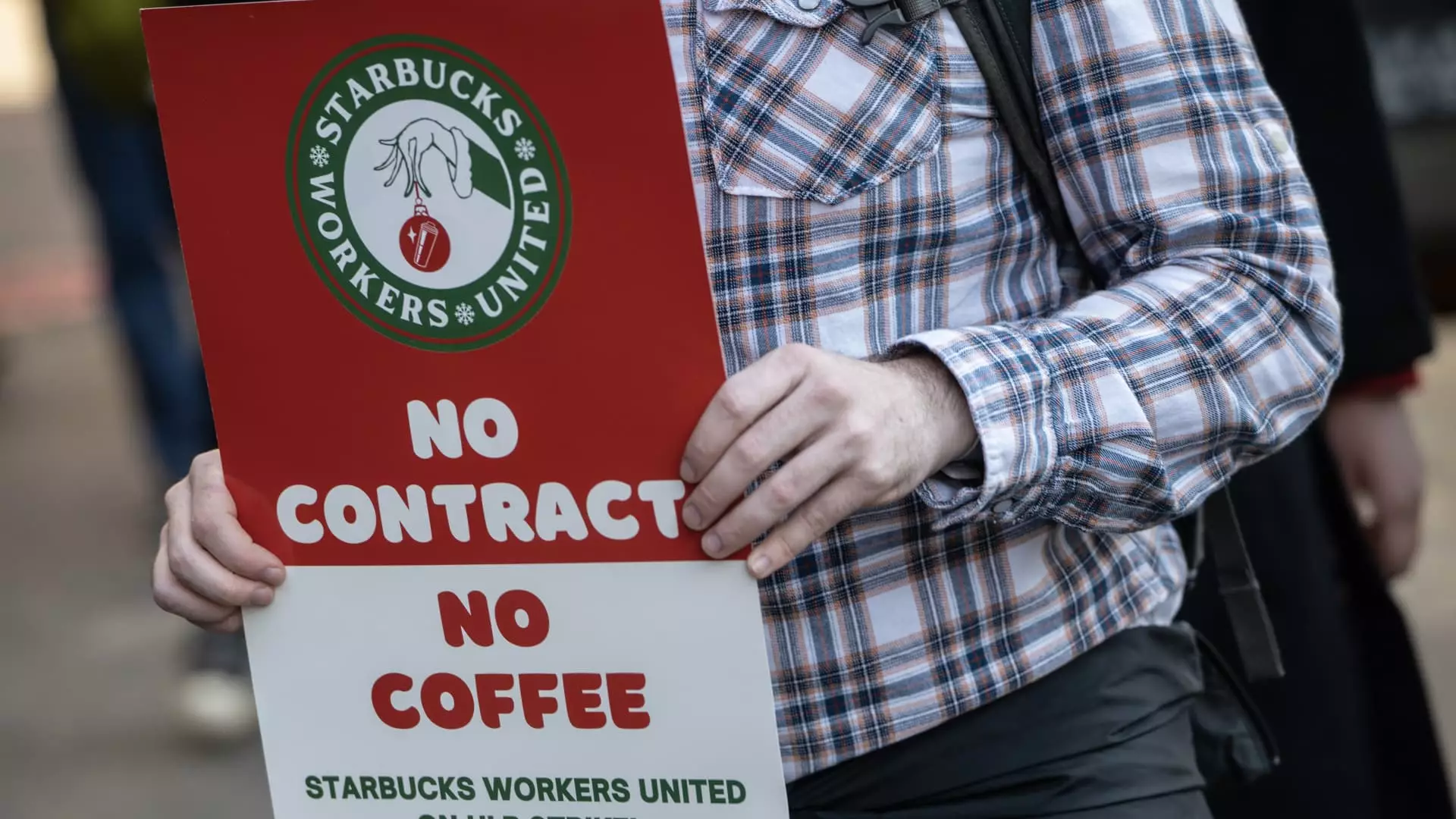In a dramatic turn of events, Starbucks baristas in various locations are gearing up for a potential strike that is set to take place through Christmas Eve. Key cities like Los Angeles, Chicago, and Seattle are at the forefront, with baristas initiating the strikes on a Friday. This action is driven by Starbucks Workers United, a union that is advocating for improved wages and working conditions for café employees. The impending strikes have raised concerns about longer wait times for holiday beverages—an alarming possibility for many consumers eager to sip on their favorite drinks amidst the festive rush.
The union has vocally condemned Starbucks for what they term “backtracking on our promised path forward.” This statement echoes the frustrations felt by many employees who believed a more constructive dialogue was underway after a previous agreement in February that outlined a plan for collective bargaining. Sadly, the sense of cooperation seems to have dwindled. The union’s call for a strike reflects not only dissatisfaction with pay but also broader concerns regarding workplace conditions, including job security and benefits.
Starbucks claims that there have been fruitful discussions leading to nine bargaining sessions over the last 20 days. However, the mood shifted dramatically after recent negotiations ended without an agreement. Just before the last meeting of the year, a strike authorization vote was taken among baristas. This strong measure signals rising tensions that could culminate in significant disruptions for the company, especially during a peak shopping season.
The company put forth its proposal during these negotiations, proposing minimal changes to current pay structures—guaranteeing only a 1.5% annual increase. This offer stands in stark contrast to the union’s demand for a 64% immediate increase in hourly wages, a request that reflects the growing dissatisfaction among employees with their current compensation.
The timing of these strikes cannot be overlooked; the holiday season is notorious for heightened consumer activity. A potential strike involving Starbucks baristas poses a real risk of delays and shortages of popular products, impacting not only the employees but also the unwitting customers who frequent these establishments. For many, a visit to Starbucks constitutes an essential part of their holiday shopping rituals, and a disrupted service could lead to widespread frustration.
The plight of Starbucks baristas is mirrored by workers in other sectors, exemplified by recent strikes from Amazon workers looking to negotiate better working conditions. This trend signifies a larger movement across various industries, as employees increasingly assert their rights to fair wages and humane working conditions.
As both Starbucks and its workforce brace for potential confrontation, the outcome of these negotiations holds critical implications not only for the baristas but also for the company’s reputation and consumer sentiment heading into the new year. The dynamics at play illustrate a growing awareness and willingness among workers to fight for their rights, marking a critical juncture in labor relations within the service industry.


Leave a Reply